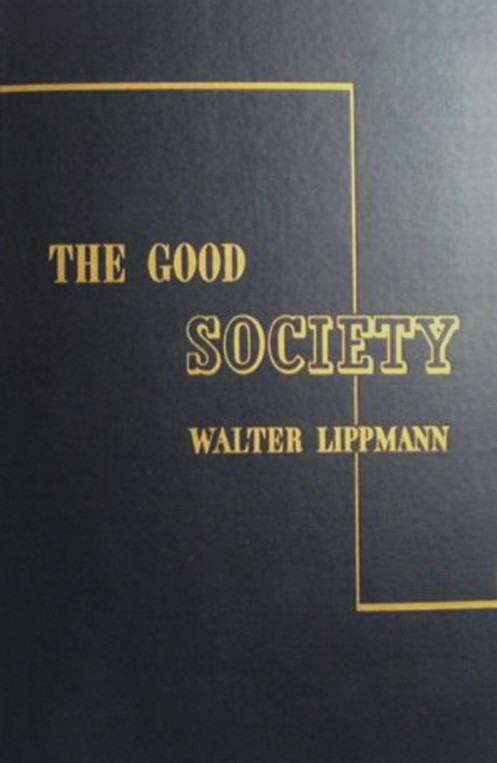Walter Lippmann: The Good Society (1937)
Filed under book | Tags: · collectivism, economy, law, liberalism, liberty, politics, society, totalitarianism

The Good Society is a critical text in the history of liberalism. Initially a series of articles published in a variety of Lippmann’s favorite magazines, as the whole evolved, it became a frontal assault against totalitarian tendencies within American society. Lippmann took to task those who sought to improve the lot of mankind by undoing the work of their predecessors and by undermining movements in which men struggle to be free. This book is a strong indictment of programs of reform that are at odds with the liberal tradition, and it is critical of those who ask people to choose between security and liberty. The Good Society falls naturally into two segments. In the first, Lippmann shows the errors and common fallacies of faith in government as the solution to all problems. He says, “from left to right, from communist to conservative. They all believe the same fundamental doctrine. All the philosophies go into battle singing the same tune with slightly different words.” In the second part of the book, Lippmann offers reasons why liberalism lost sight of its purpose and suggests the first principles on which it can flourish again. Lippmann argues that liberalism’s revival is inevitable because no other system of government can work, given the kind of economic world mankind seeks. He did not write The Good Society to please adherents of any political ideology. Lippmann challenges all philosophies of government, and yet manages to present a positive program. Bewildered liberals and conservatives alike will find this work a successful effort to synthesize a theory of liberalism with the practice of a strong democracy.
Publisher Little, Brown and Company
433 pages
One Response to “Walter Lippmann: The Good Society (1937)”
Leave a Reply


do you have EthnoMethodological Program ?…. jaj :)